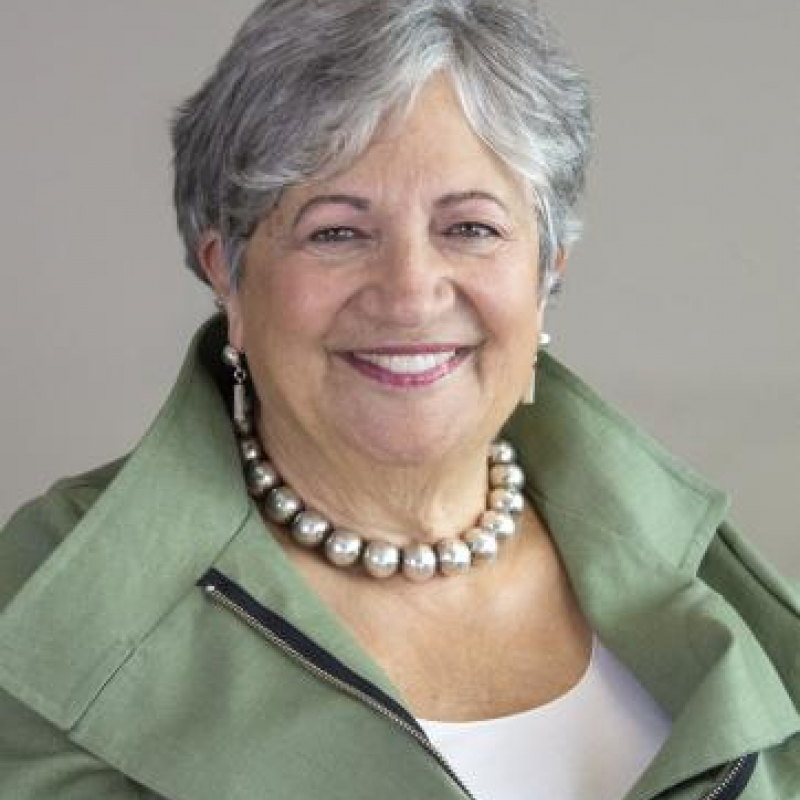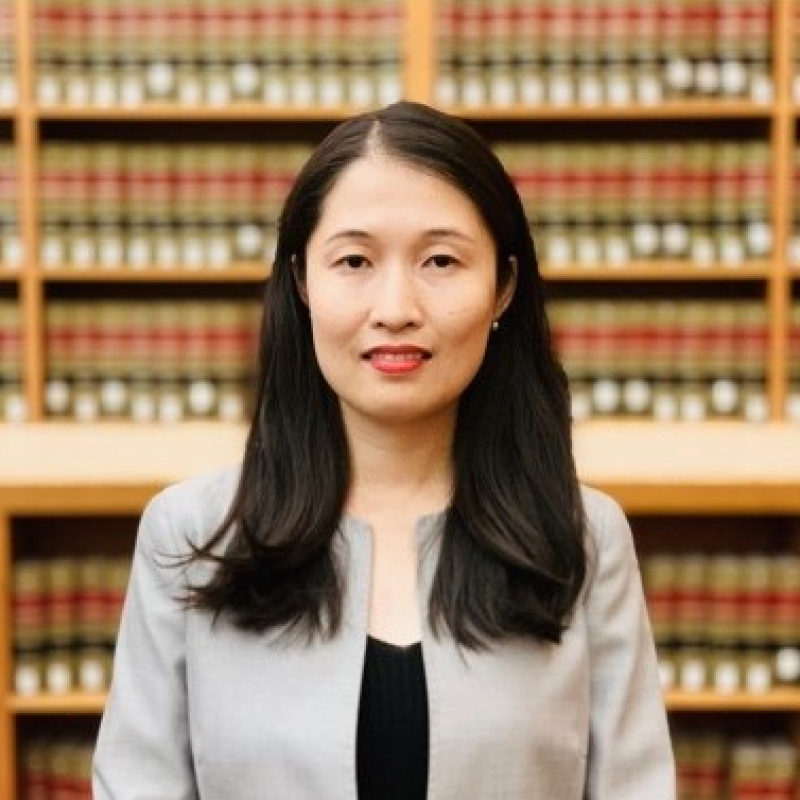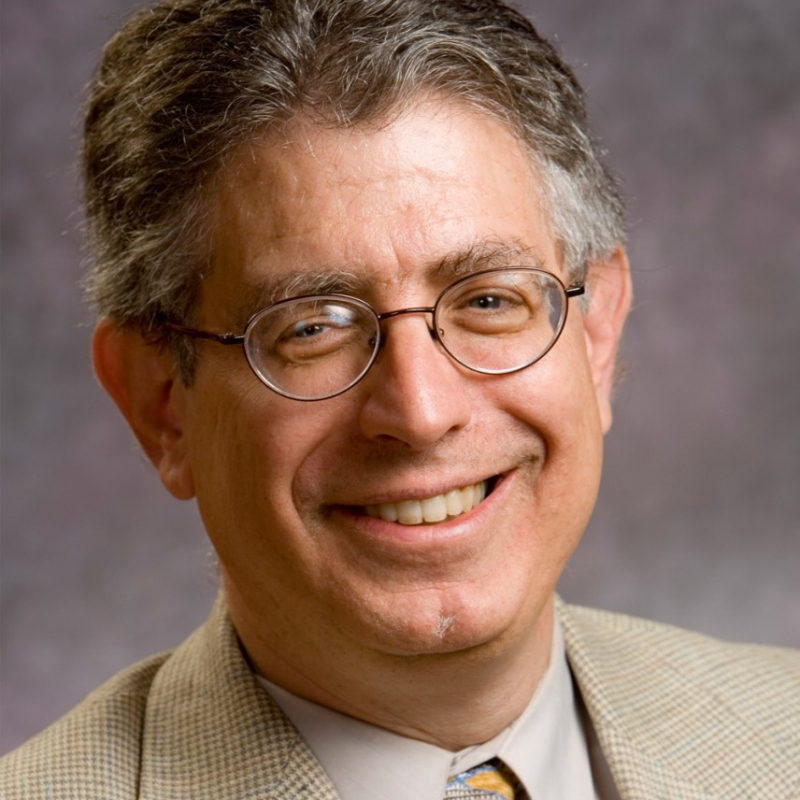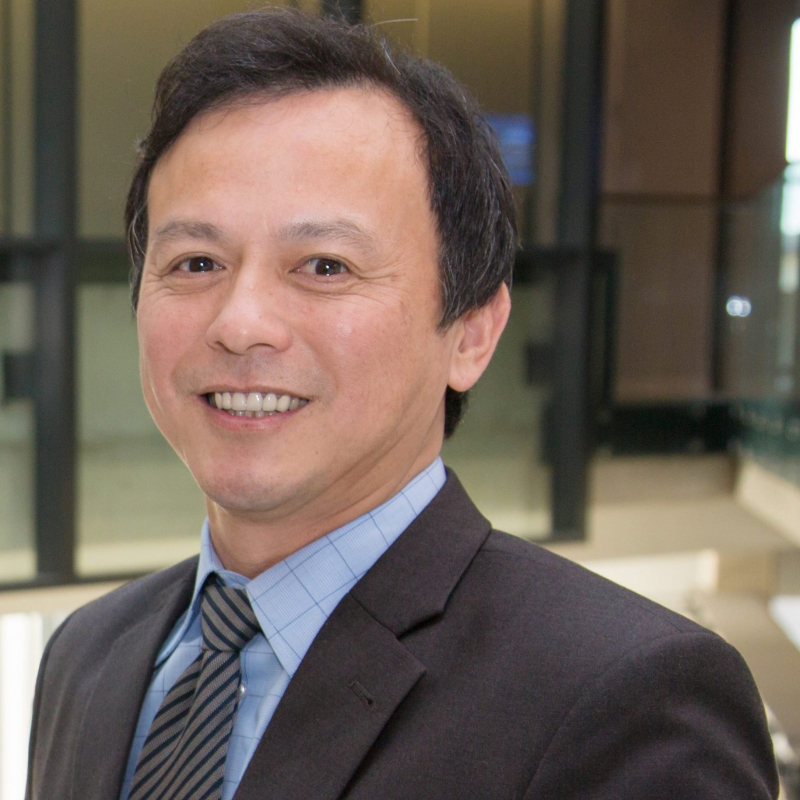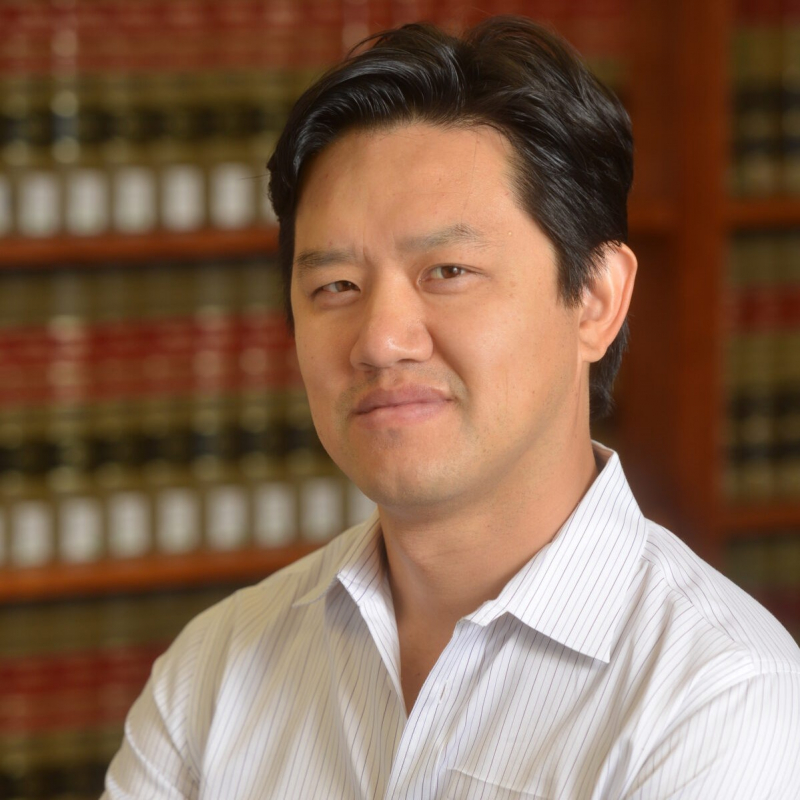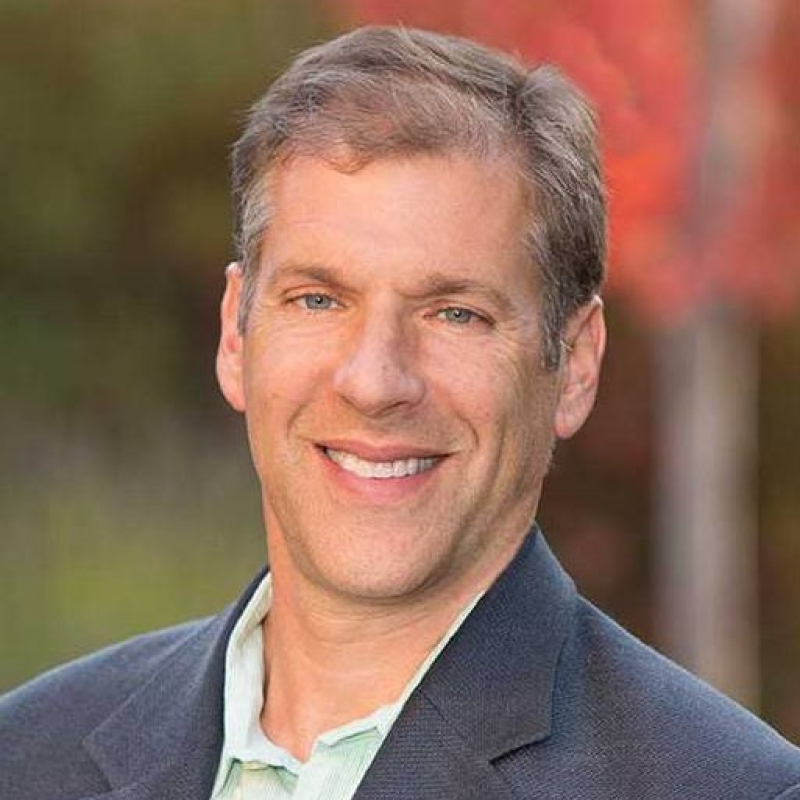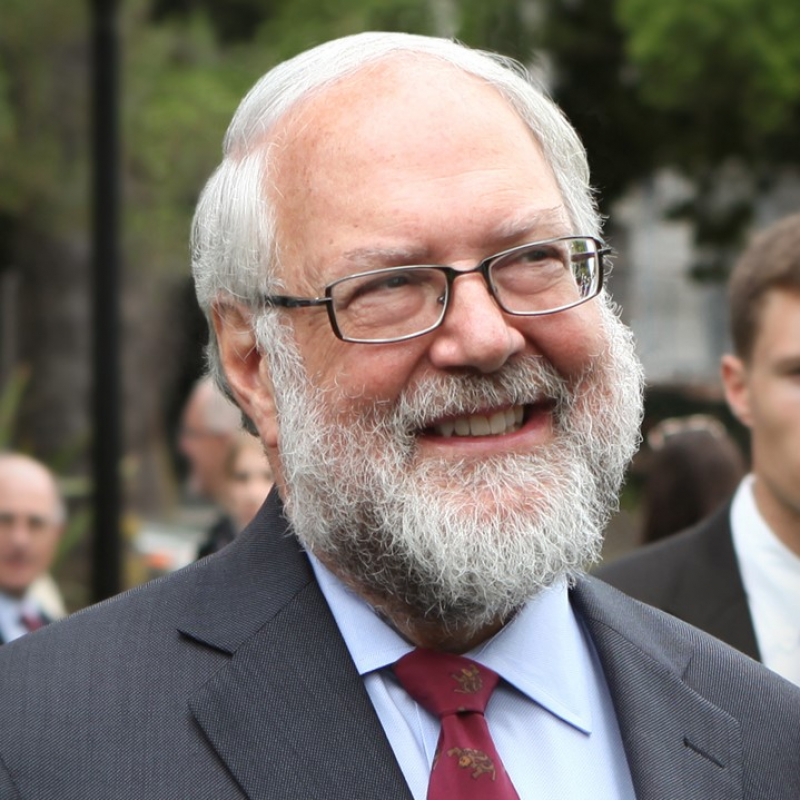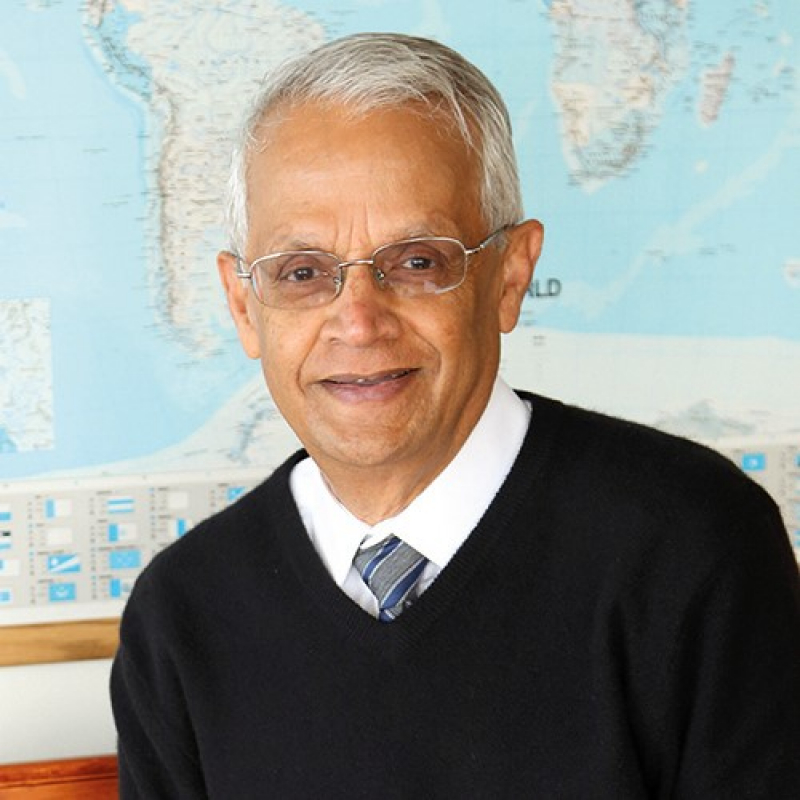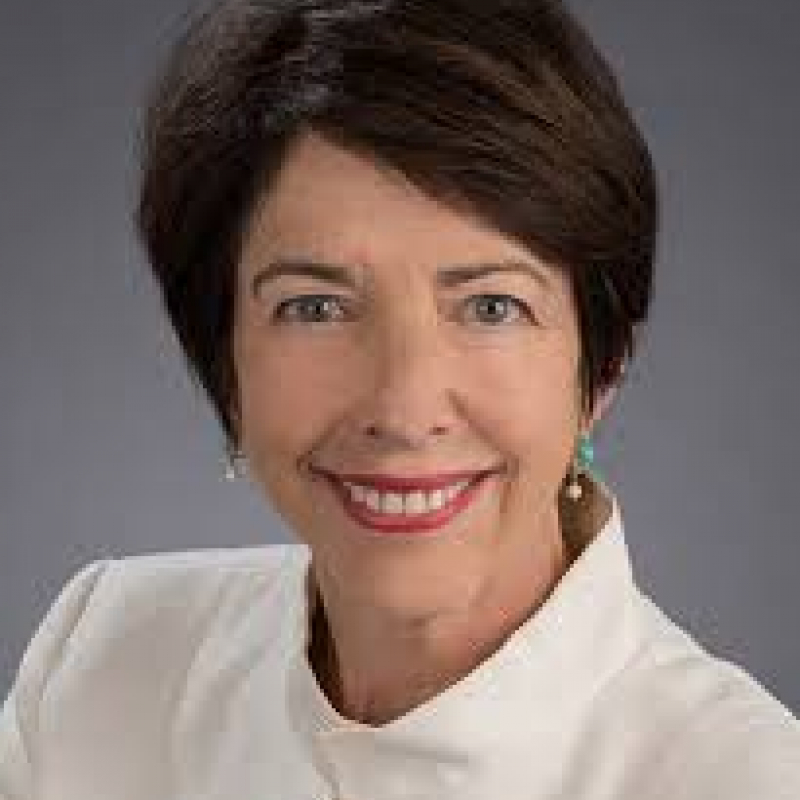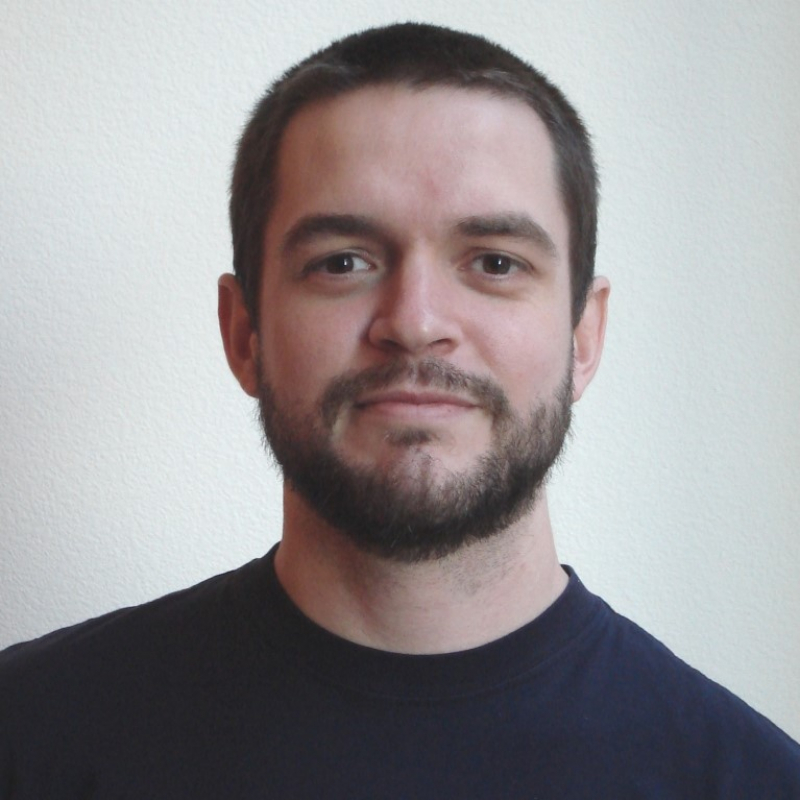Executive Team
Edmund G. Brown Jr. was born in San Francisco on April 7, 1938. He graduated from St. Ignatius High School in 1955 and entered Sacred Heart Novitiate, a Jesuit seminary. He later attended the University of California, Berkeley, graduating in 1961 before earning a J.D. at Yale Law School in 1964.
Brown was elected Trustee for the Los Angeles Community College District in 1969, California Secretary of State in 1970 and Governor of California in 1974 and 1978. After his governorship, Brown lectured and traveled widely, practiced law, served as chairman of the state Democratic Party and ran for president.
In 1998, Brown was elected Mayor of Oakland and California Attorney General in 2006. He was elected to a third gubernatorial term in 2010 and to a historic fourth term in 2014.
As Governor, Brown eliminated the state’s multi-billion dollar budget deficit, spearheading successful campaigns to establish a robust Rainy-Day Fund to prepare for the next economic downturn and provide billions in new funding for California’s schools and roads. Under Brown, California cut its unemployment rate to a record low, added nearly 3 million new jobs and expanded health coverage to millions more Californians, while enacting sweeping criminal justice, immigration, workers’ compensation, water, pension, education, housing and economic development reforms.
While Brown was Governor, California also established nation-leading targets to protect the environment and fight climate change and by 2045, the state will generate 100 percent of its electricity from renewable sources and achieve carbon neutrality.
Brown founded two public charter schools, the Oakland Military Institute and the Oakland School for the Arts. He currently serves as chair of the California-China Climate Institute, executive chair of the Bulletin of the Atomic Scientists and on the board of the Nuclear Threat Initiative. Brown lives in Colusa County with his wife Anne Gust Brown and two dogs, Colusa and Cali, on land first settled by his great-grandfather August Schuckman more than 150 years ago.
Mary Nichols is the Vice Chair of the California-China Climate Institute.
Nichols is the former Chair of the California Air Resources Board, where she occupied the attorney seat. She has served on the Board under Governor Edmund G. Brown, Jr. (1975–82 and 2010–18), Governor Arnold Schwarzenegger (2007–2010) and Governor Gavin Newsom (2019–present). She also served as California’s Secretary for Natural Resources (1999–2003), appointed by Gov. Gray Davis.
When not working for the State of California, Mary was a senior staff attorney for the Natural Resources Defense Council; Assistant Administrator for U.S. EPA’s Office of Air and Radiation, in the administration of President William Jefferson Clinton; and headed the Institute of Environment and Sustainability at UCLA.
Over a career as an environmental lawyer spanning over 45 years, Mary Nichols has played a key role in California and the nation’s progress toward healthy air. She has also led the Board in crafting California’s internationally recognized climate action plan.
Dr. Fan Dai is the Director of the California-China Climate Institute, University of California, Berkeley. Dr. Dai was appointed by Governor Jerry Brown as Special Advisor to chair the state's China Interagency Working Group and served as the liaison on critical economic and environmental initiatives with China. Previously, she served as a senior advisor at the California Environmental Protection Agency and the California Governor's Office of Business and Economic Development, where she provided counsel on the state's international policy and global climate partnerships. At the California-China Climate Institute, she led several critical research projects on subnational climate policy and long-term planning for carbon neutrality and executed Governor Jerry Brown and Gavin Newsom’s successful trip to China as well as other high-level US-China climate dialogues. Her research expertise includes market mechanisms for climate change mitigation, climate diplomacy and governance.
Dr. Dai graduated from the School of Law, University of California, Berkeley, with a master’s in law, and the State University of New York, College of Environmental Science and Forestry with a Ph.D. in Environmental Economics and Policy.
Dan Farber is the Sho Sato Professor of Law at the University of California, Berkeley. He is also the Faculty Director of the Center for Law, Energy, and the Environment. Professor Farber serves on the editorial board of Foundation Press. He is a member of the American Academy of Arts and Sciences and a Life Member of the American Law Institute. He is the editor of Issues in Legal Scholarship.
Professor Farber is a graduate of the University of Illinois, where he earned his B.A., M.A., and J.D. degrees. He graduated, summa cum laude, from the College of Law, where he was the class valedictorian and served as Editor-in-Chief of the University of Illinois Law Review. After graduation from law school, he was a law clerk for Judge Philip W. Tone of the United States Court of Appeals for the Seventh Circuit and then for Justice John Paul Stevens of the Supreme Court of the United States. Professor Farber practiced law with Sidley & Austin, where he primarily worked on energy issues, before joining the University of Illinois College of Law faculty in 1978. He was a member of the University of Minnesota Law School faculty from1981 to 2002, where he was the McKnight Presidential Professor of Public Law. He also has been a Visiting Professor at the Stanford Law School, Harvard Law School, and the University of Chicago Law School.
Among Professor Farber’s eighteen books are RESEARCH HANDBOOK ON PUBLIC CHOICE AND PUBLIC LAW (Elgar 2010) (with A. O’Connell); JUDGMENT CALLS: POLITICS AND PRINCIPLE IN CONSTITUTIONAL LAW (Oxford University Press 2008) (with S. Sherry); RETAINED BY THE PEOPLE: THE “SILENT” NINTH AMENDMENT AND THE RIGHTS AMERICANS DON’T KNOW THEY HAVE (Basic Books 2007); and LINCOLN’S CONSTITUTION (University of Chicago Press 2003).
Ken spent eight years as a Senior Policy Advisor to Governor Jerry Brown, the Director of the Governor’s Office of Planning and Research, and the Chair of the Strategic Growth Council, focusing on climate, environment, and land use issues. Before joining the Governor’s Office, Ken was the Senior Assistant Attorney General heading the environment section of the California Attorney General’s Office, and the co-head of the Office’s global warming unit. From 2000 to 2006, He led the California Attorney General’s energy task force, investigating price and supply issues related to California’s energy crisis.
Ken is a graduate of Harvard Law School and holds a B.A. in political theory from the University of California at Santa Cruz.
Louise Bedsworth is the Executive Director of the Center for Law, Energy and the Environment (CLEE), and also serves as a Senior Advisor to the California China Climate Institute. Prior to assuming the role of Executive Director, she was CLEE's Director of their Land Use Program.
Before joining CLEE, Louise spent nearly a decade working for the State of California, most recently as the Executive Director of the Strategic Growth Council, a Cabinet-level State institution that brings together multiple agencies and departments to support sustainable communities emphasizing strong economies, social equity, and environmental stewardship.
Prior to joining SGC, Louise was the Deputy Director of the Office of Planning and Research in Governor Jerry Brown’s office. At OPR she led work on a number of collaborative research initiatives and climate change adaptation and resilience, including development of the Integrated Climate Adaptation and Resiliency Program and implementation of the State’s $70 million grant awarded under the National Disaster Resilience Competition.
Before joining OPR, Louise was a research fellow at the Public Policy Institute of California, where her work focused on climate change adaptation, local government action on climate change, and transportation. She has also held positions at the Union of Concerned Scientists, Redefining Progress, and the International Institute of Applied Systems Analysis.
Louise received a B.S. in Earth, Atmospheric, and Planetary Sciences from the Massachusetts Institute of Technology and an M.S. in Environmental Engineering and Ph.D. in Energy and Resources, both from the University of California at Berkeley.
Evan Westrup is a Senior Advisor with the California-China Climate Institute at UC Berkeley.
He has worked with former California Governor Edmund G. Brown Jr. for more than a decade, including serving as press secretary, communications director and chief spokesperson for the Governor from 2013 until the end of the administration in 2019.
Prior to that, Westrup was Deputy Press Secretary in the Governor’s Office, on the Governor's 2010 campaign and at the California Department of Justice. He also served as Deputy Youth Vote Director on President Barack Obama’s 2008 campaign in New Mexico, Associate Communications Director to California Governor Arnold Schwarzenegger and as an aide to a member of Scottish Parliament.
Westrup earned his bachelor’s degree from UC San Diego and master’s degree in International and European Politics from the University of Edinburgh in Scotland. He started his career as a Capital Fellow in Sacramento and as a Coro Fellow in Los Angeles and was recently selected to participate in the Marshall Memorial Fellowship, the German Marshall Fund's flagship Transatlantic leadership development program.
Staff
Jenn Perron is a Senior Climate Policy Fellow with the California-China Climate Institute (CCCI). With over 15 years of experience in climate science and policy, Jenn has advanced international climate cooperation in academia, think tanks, and non-profits. At the California-China Climate Institute (CCCI), Jenn supports climate policy research, dialogues, and training aimed at strengthening climate action. Prior to joining CCCI, Jenn worked as a Project Manager at The Brookings Institution, facilitating inter-disciplinary collaboration and research scholarship on climate and energy issues, including on sectoral decarbonization approaches, energy transitions, and climate diplomacy. Before that, she managed external partnerships and community engagement at MIT’s Center for Collective Intelligence’s Climate CoLab - an online crowdsourcing platform - where she also coordinated a cohort of more than 150 global volunteers and contributed to social science research. Previously, she led network engagement on international climate policy for a non-profit climate network, leading dialogues, workshops, and civil society engagement processes. Jenn has a strong background in both the science and politics of global climate change, with areas of interest in international climate policy and diplomacy and its nexus with U.S. domestic climate policies, in adaptation, adaptive capacity, and building community resilience, and in the role of the networks advancing multilateral environmental governance processes.
She holds a Master’s in Environmental Policy from the University of Michigan’s School of Natural Resources and Environment, and a Bachelor’s in environmental science.
M.S., Environmental Policy, University of Michigan
Dr. Jessica Gordon is a Research Director at the California-China Climate Institute. She is an international climate and environment policy expert. Her research and work have focused on China and linking research and policy to develop equitable and integrated solutions to climate, development and environmental challenges. Her earlier work experience includes working on global climate policy at the United Nations Development Program and leadership of Oxfam’s adaptation research program in China.
For her research, Dr. Gordon was awarded fellowships from the Fulbright Program (China), the Social Science Research Council and the East-West Center. She holds a Ph.D. in Environmental Policy and Planning from Massachusetts Institute of Technology, a Master’s in Environmental Science from the Yale School of the Environment and a BA in International Development from Brown University.
Rixin Zhu is a Methane Policy Fellow at the California-China Climate Institute (CCCI), UC Berkeley. He has worked on a broad range of environmental issues, such as methane control in China, air pollution, and corporate social responsibility.
Before joining CCCI, Rixin worked as a research assistant in an Environment Economics and Law Interdisciplinary Research Group at the Renmin University of China, conducting interdisciplinary research on environmental policies and helping construct an environment-law database. During his graduate work at Yale University, he served as a corporate social responsibility consultant at the Yale School of Management.
Rixin has rich experience in researching environmental economics and policy issues. He has co-authored a report about the environmental and economic effects of an air pollution control policy in northern China. The report was submitted to the Ministry of Ecology and Environment of China and noted by former Minister Ganjie Li.
He has also conducted research on various topics, such as China’s water price setting, biodiversity, and methane emission control in China. His areas of interest are methane emission reduction, China’s decarbonization path, and the function of policy design in promoting sustainable economic development and joint effort to tackle climate change.
Rixin holds a master’s degree in Environmental Science from the Yale School of Environment and a Bachelor’s degree in Economy of Resources and Environment from the Renmin University of China.
Ellen is a Program Administrator with the California-China Climate Institute (CCCI). She assists in the day-to-day function of CCCI through event planning, business services, and communications & design.
Prior to joining CCCI, Ellen worked in environmental non-profits, focusing primarily on sustainable food systems and outdoor education. Most recently, Ellen was a Research Assistant with the Organic Seed Alliance, where she worked on climate adaptation in the agricultural sector. She is passionate about innovative climate solutions and looks forward to lending operational support to CCCI.
Ellen earned her B.A. from Macalester College, where she studied Political Science and International Studies. Ellen comes to CCCI with two years of experience in immigration law. She is excited to contribute to the effort to foster dialogue and promote climate action at the international scale.
Anni Dai is a climate policy fellow at the California-China Climate Institute. Currently pursuing an S.J.D. degree from the University of Connecticut School of Law, her research focuses on comparative analysis of prominent renewable energy incentives implemented globally. She aims to propose effective methodologies for China to systematically integrate renewable energy, thereby contributing to climate change mitigation and adaptation efforts.
Anni Dai has contributed to various esteemed journals, where she has shared insights on the political and legal frameworks surrounding renewable portfolio standards in China, drawing lessons from the experiences of the United States. Additionally, she has provided recommendations for establishing regulatory frameworks for energy planning related to ultra-high voltage transmission systems in China, with the aim of facilitating the integration of renewable energy sources. Prior to joining the California-China Climate Institute, Anni Dai gained professional experience working at law firms and energy companies in both China and the United States.
Weila Gong is a Climate Policy Fellow at UC Berkeley’s California-China Climate Institute. Her scholarship explores comparative climate and environmental policy and politics. Her research has been driven by understanding the political dynamics of global climate leadership across different levels of government. She focuses specifically on China, notably its low-carbon energy transitions, low-carbon cities, and greening the Belt and Road Initiative (BRI), as well as the U.S.-China Climate Cooperation on Climate Change. Her work has appeared in journals such as The China Quarterly, Environmental Politics, and Energy Research and Social Science. Her forthcoming book, Implementing the Low-Carbon Future: Climate Leadership in Chinese Cities, will be published by Oxford University Press.
She was previously a Postdoctoral Fellow at the Environment and Natural Resources Program (ENRP) and Science, Technology, and Public Policy Program (STPP) at Harvard Kennedy School’s Belfer Center for Science and International Affairs and the Science, Technology and International Affairs Program (STIA) at Georgetown University’s School of Foreign Service, as well as a visiting Predoctoral Fellow at the Brookings-Tsinghua Center. Weila holds a Ph.D. in Political Science from the Technical University of Munich, as well as a Master’s degree in International Relations and a Bachelor’s degree in History from Sun Yat-sen University, China.
Academic Advisory Committee
David Ackerly is the Dean of the Rausser College of Natural Resources at the University of California, Berkeley.
He joined the faculty of the Department of Integrative Biology 2005, held the Virginia G. and Robert E. Gill Chair in Natural History from 2010 to 2015, and had been serving as Associate Dean of the College of Letters and Science's Biological Sciences Division since before his appointment as Rausser College Dean.
His work has tackled a variety of topics including the study of climate change impacts on biodiversity, focusing on the native flora of California, and implications for future challenges in conservation and land management.
He co-directs the Terrestrial Biodiversity and Climate Change Collaborative (tbc3.org), a partnership with the Dwight Center for Conservation Science at Pepperwood Preserve, focused on climate change and resource management in the San Francisco Bay Area.
Michael C. Lu is the Dean of the School of Public Health at the University of California. Berkeley.
Lu was formerly the Senior Associate Dean for Academic, Student and Faculty Affairs at George Washington University’s Milken Institute School of Public Health, where he led efforts to expand the undergraduate program, overhaul the MPH curriculum, strengthen doctoral training, institute a Master Teachers Academy, and improve the student experience.
Prior to joining George Washington University, Lu was the director of the Maternal and Child Health Bureau for the U.S. Department of Health and Human Services from 2012 to 2017. Before joining the federal government, he was with UCLA Schools of Medicine and Public Health, where he was Professor of Obstetrics, Gynecology and Public Health.
He is a staunch and passionate advocate for public health, research and community engagement.
Alex Wang is Professor of Law at UCLA School of Law, and a leading expert on environmental law and the law and politics of China. His research focuses on the social effects of law, and the interaction of law and institutions in China and the United States.
His previous research work examined, among other things, the institutional design of environmental law and policy, environmental bureaucracy, public interest litigation, information disclosure, and environmental courts. His work has addressed air pollution, climate change, and other environmental issues.
Prior to joining UCLA, Wang was a senior attorney for the Natural Resources Defense Council (NRDC) based in Beijing and the founding director of NRDC's China Environmental Law & Governance Project. In this capacity, he worked with China's government agencies, legal community, and environmental groups to improve environmental rule of law and strengthen the role of the public in environmental protection. Before that, he was an attorney at the law firm of Simpson Thacher & Bartlett LLP in New York City, where he worked on mergers & acquisitions, securities matters, and pro bono Endangered Species Act litigation.
Nan Zhou is a Senior Scientist, Head of the International Energy Analysis Department, and Lead of the China Research Program at Lawrence Berkeley National Laboratory.
Zhou is also the U.S. Director of the U.S.-China Clean Energy Research Center-Building Energy Efficiency (CERC-BEE), a 10-year presidential level research-based consortium of U.S. and Chinese scientists and private companies. Zhou is a Lead Author of the Intergovernmental Panel on Climate Change's (IPCC)'s forthcoming Sixth Assessment Report. She serves on the Advisory Board of the Asia Pacific Energy Research Centre (under the Asia Pacific Economic Cooperation, APEC) and the APEC Sustainable Energy Center.
She was appointed to the Applied Energy Editorial Board in 2017, served as the Co-Chair of the 2016 Buildings Summer Study of the American Council for an Energy-Efficient Economy (ACEEE), and has been a Committee Member of the China Green Building Council since 2015.
Zhou received the Outstanding Research and Contribution Prize for her 2019 publication in Applied Energy entitled, A roadmap for China to peak carbon dioxide emissions and achieve a 20% share of non-fossil fuels in primary energy by 2030, led the Berkeley Lab team that received the 2017 R&D100 Award for the BEST City tool, and 2020 R&D100 Award for BETTER tool development. She was a finalist for the 2016 C3E Awards for mid-career women's leadership and achievement. She also a recipient of the National Excellent Young Scholar Award by Architectural Institute of Japan.
Max Auffhammer is the George Pardee Jr. Professor of International Sustainable Development and Associate Dean in the Division of Social Sciences at UC Berkeley.
His work focuses on environmental and resource economics, energy economics and applied econometrics. He is a Research Associate at the National Bureau of Economic Research in the Energy and Environmental Economics group, a Humboldt Fellow, and a lead author for the Intergovernmental Panel on Climate Change.
His research has appeared in The American Economic Review, the Review of Economic Studies, The Review of Economics and Statistics, The Economic Journal, the Proceedings of the National Academies of Sciences, the Journal of Environmental Economics and Management, The Energy Journal and other academic journals. Auffhammer has been awarded several teaching awards among them, the Cozzarelli Prize awarded by the National Academies of Sciences, and the Sarlo Distinguished Mentoring Award.
Jonas Meckling is Assistant Professor of Energy and Environmental Policy at the University of California, Berkeley, Goldman School of Public Policy.
From 2012 to 2013, he served as Senior Advisor to the German Federal Ministry of the Environment, the lead agency for Germany's clean energy policy. There he worked on a broad range of clean energy, climate and gas policy issues.
Prior to working in government, Meckling was a Pre-doctoral and Post-doctoral fellow at Harvard University's John F. Kennedy School of Government. He worked with the Energy Technology Innovation Policy Group, the Harvard Project on Climate Agreements and the Geopolitics of Energy Project at Harvard.
He is the author of two books, the latest of which is, Carbon Coalitions: Business, Climate Politics, and the Rise of Emissions Trading. Meckling previously worked at the European Commission and the Allianz Group.
David Anthoff is an assistant professor in the Energy and Resources Group at the University of California, Berkeley.
Previously he was an assistant professor in the School of Natural Resources and Environment at the University of Michigan, a postdoc at the University of California, Berkeley and a postdoc at the Economic and Social Research Institute in Ireland. He also was a visiting research fellow at the Smith School of Enterprise and the Environment, University of Oxford.
Anthoff is an environmental economist who studies climate change and environmental policy. He co-develops the integrated assessment model FUND that is used widely in academic research and in policy analysis.
His research has appeared in Science, the Journal of Environmental Economics and Management, Environmental and Resource Economics, the Oxford Review of Economic Policy and other academic journals.
He contributed a background research paper to the Stern Review and has advised numerous organizations (including US EPA and the Canadian National Round Table on the Environment and the Economy) on the economics of climate change.
Eric Biber is Professor and Director for Environmental and Energy Law Programs at UC Berkeley. His research interests are environmental law, natural resources law, energy law, land-use law, federal Indian law, administrative law, and property.
Prior to joining Berkeley, he worked as a litigator in the Denver office of Earthjustice, a public-interest nonprofit organization specializing in public lands and other environmental cases. He taught public lands law as an adjunct faculty member at the University of Denver Sturm College of Law in fall 2005. He is a memeber of both the Colorado and California bars.
His scholarship has appeared in a wide range of law reviews, including the University of Chicago Law Review, UCLA Law Review, Georgetown Law Journal, Vanderbilt Law Review, University of Colorado Law Review, Harvard Environmental Law Review, Environmental Law, NYU Environmental Law Journal, and Administrative Law Review.
Biber has published in several leading peer-reviewed natural science and social science journals, including Society and Natural Resources, Frontiers in Ecology and Environment, Ecography, and Science.
William Collins is Professor in Residence, Earth and Planetary Science; Director, Climate & Ecosystem Sciences Division, Lawrence Berkeley National Laboratory and Director, Accelerator for Climate, Energy & Environment Solutions.
Before joining UC Berkeley and Berkeley Lab, Dr. Collins was a Senior Scientist and Chair of the Scientific Steering Committee for the DOE/NSF Community Climate System Model project at the National Center for Atmospheric Research.
He is a Coordinating Lead Author of the Sixth Assessment of the Intergovernmental Panel on Climate Change (IPCC), a Lead Author of the Fifth IPCC Assessment, and a Lead and Collaborating Author of the Fourth IPCC Assessment, for which the IPCC was awarded the 2007 Nobel Peace Prize.
He is a Fellow of the American Association for the Advancement of Science (AAAS) and the American Physical Society (APS). Dr. Collins was awarded the DOE Secretarial Honor Award for launching DOE’s Accelerated Climate Model for Energy in 2015
Jiang Lin is the Nat Simons Presidential Chair in China Energy Policy at the Lawrence Berkeley National Lab, a Staff Scientist at its China Energy Group, and an Adjunct Professor at the Department of Agricultural and Resource Economics at the University of California at Berkeley.
His research is focused on energy and climate policy, energy and emissions pathways, electricity market and planning, low-carbon economics transition and appliance efficiency issues in China.
Previously, he worked the Energy Foundation China, first as a Senior Vice President for Strategy and Analysis and then as its Director of Sustainable Energy Program and Senior Vice President for Strategy and Analysis. He managed the growth of Energy Foundation China into one of the largest international NGOs devoted to promoting clean energy and climate solutions in China. Before joining the Energy Foundation, he was at LBNL conducting research in the Appliance Standards and China Energy Groups.
Lin holds a PhD in Demography from the University of California, Berkeley, an MS in Population Studies and BS from the Department of Cybernetics Engineering from Xi'an Jiaotong University, China.
Solomon Hsiang is the Chancellor's Professor of Public Policy at the University of California, Berkeley, a Co-Director at the Climate Impact Lab, Research Associate at the National Bureau of Economic Research (NBER), a National Geographic Explorer, an Andrew Carnegie Fellow and a Senior Fellow with the Berkeley Institute of Data Science.
He combines data with mathematical models to understand how society and the environment influence one another. In particular, he focuses on how policy can encourage economic development while managing the global climate.
Hsiang earned a BS in Earth, Atmospheric and Planetary Science and a BS in Urban Studies and Planning from the Massachusetts Institute of Technology, and he received a PhD in Sustainable Development from Columbia University.
He was a Postdoctoral Fellow in Applied Econometrics at the NBER and a Postdoctoral Fellow in Science, Technology and Environmental Policy at Princeton University.
Dan Kammen is a Professor of Energy at the University of California, Berkeley, with parallel appointments in the Energy and Resources Group where he serves as Chair, the Goldman School of Public Policy where he directs the Center for Environmental Policy, and the department of Nuclear Engineering.
Kammen is the founding director of the Renewable and Appropriate Energy Laboratory and the co-director of the Berkeley Institute of the Environment. He is a former Science Envoy for the U.S Department of State and was chief technical specialist for renewable energy and energy efficiency at the World Bank Group where his work included funding electrified personal and municipal vehicles in China, and a “green corridor “ transmission project linking renewable energy assets in Kenya and Ethiopia.
He is an author or co-author of 12 books and more than 300 peer-reviewed journal publications. He is also a lead author for the Intergovernmental Panel on Climate Change, which won the 2007 Nobel Peace Prize. Kammen is a permanent fellow of the African Academy of Sciences, a fellow of the American Academy for the Advancement of Science, and the American Physical Society. In the US, he has served on several National Academy of Sciences boards and panels.
Jared is the Director of Strategic Initiatives at the UC Berkeley School of Public Health where he oversees operationalization of the Dean's priority programs and manages the School of Public Health's engagement in Asia. In previous roles with the China Health Partnership at the Harvard T.H. Chan School of Public Health and with Peking University's Guanghua School of Management in Beijing, Jared drove China-focused international collaborations among leading academic institutions, government agencies (including China's national health insurer), IGOs, and industry partners. Previously at Berkeley, he worked in the Office of the Associate Vice Chancellor for Business and Administrative Services on University-wide initiatives and in the Chancellor's Immediate Office as Acting Executive Assistant to the Chancellor. He served as a multi-year mentor for interns at the Carnegie-Tsinghua Center in Beijing and is currently an active volunteer for Asia Society Northern California.
Jared received his BA in Political Economy (Chinese minor) with High Distinction from the University of California, Berkeley and graduated with an MBA from a Chinese-taught program at Central South University (中南大学) in China’s Hunan province.
Research Affiliates
Research Affiliate, California-China Climate Institute
Former Chair, California Energy Commission
Robert Weisenmiller is a former Chair of the California Energy Commission and one of the world’s leading voices on energy.
For more than nine years, he served at the California Energy Commission under both Republican and Democratic administrations. Weisenmiller’s work is instrumental in shaping California’s pioneering energy policies including addressing exponential electricity growth, costs, and environmental impacts through greenhouse gas-reducing solutions, advancing cost-effective energy efficiency standards for buildings and appliances, encouraging innovative clean energy Research & Development projects, and developing the state’s electricity demand forecast.That forecast is the foundation of California’s highly analytical and comprehensive electric system planning.
He co-founded and managed MRW & Associates, using his expertise to assist businesses, financial institutions, and public regulatory agencies in strategic planning, policy development, energy market analysis and regulation, power pricing for qualifying facility projects, marginal cost analysis, rate design, and implication of utility mergers.
He has provided expert witness testimony to more than 100 state and federal public regulatory agencies and court proceedings, did power market due diligence for dozens of project financings, and has authored numerous publications on electricity and natural gas markets.
Veerabhadran Ramanathan is the Edward A. Frieman Endowed Presidential Chair in Climate Sustainability at the Scripps Institution of Oceanography, University of California, San Diego.
He discovered the greenhouse effect of halocarbons, particularly chlorofluorocarbons (CFCs) used in such applications as refrigeration and manufacturing. This discovery showed how gases such as CFCs that deplete the ozone layer could also have ramifications for climate.This led to establishing the now accepted fact that non-CO2 gases are a major cause of planet warming and also enabled the Montreal Protocol to become the first successful climate mitigation policy. Ramanathan is a distinguished contributor to several areas of the atmospheric sciences including developments to climate models, radiative forcing of climate change, atmospheric pollution and brown clouds. He has been a part of major projects such as the Indian Ocean Experiment (INDOEX) and the Earth Radiation Budget Experiment (ERBE). His work has led to numerous policies including the formation of the Climate and Clean Air Coalition by the United Nations. He now heads the Bending the Curve: Climate Change Solutions project of the University of California; and editor and author of the 2019 book: Bending the Curve: Climate Change Solutions.
For his illustrious work, he received the Tyler Prize by Nobel Laureate Sherwood Rowland in 2009 and named as Earth Champion by UN in 2013.He is a recipient of numerous honors and awards, and was named as Science Advisor to Pope Francis’ Holy See delegation to the Paris Climate Summit; is a member of the National Academy of Sciences and council member of the Pontifical Academy of Science and a foreign member of the Royal Swedish Academy of Sciences.
Daniel Sperling is Distinguished Blue Planet Prize Professor of Civil Engineering and Environmental Science and Policy, founding Director of the Institute of Transportation Studies, and founding Chair of the Policy Institute for Energy Environment and Economy at the University of California, Davis.
He is a leading international expert on transportation and climate policy with leadership positions on key boards and committees, including the California Air Resources Board, appointed by Governors Arnold Schwarzenegger and Jerry Brown. He was 2013 chair of the California Fuel Partnership, and 2015 chair of the National Academies’ Transportation Research Board.
In recognition of his illustrious work, Sperling received the 2010 Heinz award and the 2013 Blue Planet Prize, described as the Nobel Prize for the environmental sciences. He has testified eight times to the U.S. Congress, and has authored or edited over 250 technical articles and 12 books, including, Three Revolutions: Steering Automated, Shared, and Electric Vehicles to a Better Future (2018), and Two Billion Cars (2009).
Susan Shirk is Research Professor and Chair of the 21st Century China Center at UC San Diego’s School of Global Policy and Strategy.
She is one of the most influential experts working on U.S.-China relations and Chinese politics. She previously served as Deputy Assistant Secretary of State (1997-2000), responsible for U.S. policy toward China, Taiwan, Hong Kong and Mongolia and she founded and continues to lead the Northeast Asia Cooperation Dialogue, an unofficial forum for discussions of security issues. She is Director Emeritus and Advisory Board chair of the University of California Institute on Global Conflict and Cooperation, has served as a member of the U.S. Defense Policy Board, the Board of Governors for the East-West Center in Hawaii, the Board of Trustees of the U.S.-Japan Foundation and the Board of Directors of the National Committee on United States-China Relations.
For her distinguished teaching, research and service, she was awarded the 2015 Roger Revelle Medal, the highest honor given by the Chancellor to a UC San Diego faculty member. She is the author of China: Fragile Superpower; Changing Media, Changing China; and The Political Logic of Economic Reform in China.
Dr. Fredrich (Fritz) Kahrl is managing partner at 3rdRail Inc., a research fellow at the California-China Climate Institute (CCCI), and an affiliate with the Electricity Markets and Policy Group at Lawrence Berkeley National Laboratory. He works primarily on energy markets, regulation, and policy in the U.S., China, and India. He received MS and PhD degrees from the Energy and Resources Group at UC Berkeley and a BA in philosophy from the College of William & Mary. He currently teaches DEVP (Development Practice) 221: Climate, Energy, and Development at UC Berkeley.
Jianqiang Liu is a China environmental policy and media expert, author, award-winning senior investigative journalist, and the editor-in-chief of several outstanding media outlets.
Before joining CCCI, Jianqiang Liu worked as China Contributing Editor for Carbon Brief, an online media based in London focusing on climate science and policy. Prior to joining Carbon Brief, Jianqiang Liu worked as China Representative and Beijing Editor of China Dialogue, the first bilingual media focused on China’s environment and climate. He led China Dialogue Beijing Office to play a key role in sparking widespread public discussion of environment and climate issues in China through high-quality coverage. During this period, he co-founded the Chinese Environmental Press Awards with The Guardian, which became the most prestigious environmental press awards in China.
Before that, Liu was a senior investigative reporter with Southern Weekly, China's most influential investigative newspaper. Some of Liu's most reporting, including his exposé on the controversial Tiger Leaping Gorge Dams, his piece on genetically modified rice, and his article on the Summer Palace Lake illegal reconstruction, have all changed the decision-making of the Chinese government.
For his distinguished climate and environmental journalism, he was awarded the 2011 “Green Hero” prize by the SEE-TNC Ecological Awards. His books include Tibetan Environmentalists in China: The King of Dzi (2015), Chinese Research Perspectives on the Environment, Volume 6 (2016), and Chinese Research Perspectives on the Environment, Volume 9 (2019).
Liu holds a M.A. in Journalism from Tsinghua University and a B.A. in Political Science from East China University of Science and Technology.
2024 Student Travel Grant Recipients
Chengyao Liang, a PhD student in the department of civil and environmental engineering. Her PhD research focuses on uncovering the decarbonization pathways of cement fields and environmental impacts using China’s cement industry as a model system. She is also delicate in developing cutting-edge new technologies for concrete recycling. Her project can enhance the circularity of construction materials and extend their use life, to lower the carbon footprint of the construction industry.
Zhixiang (David) Su is currently a second-year PhD student in sociology at Berkeley. Born and raised in Southern China, he earned a bachelor’s degree in Sociology from Wuhan and his Mphil in Sociology and Demography from Oxford University. Previously, he has been invested in a social network research project, applying survey and computational methods to study how personal networks shape social inequality in health, especially during the pandemic in Wuhan. He conducted a survey among the college population in Wuhan that examines how network mobilization produces heterogeneous outcomes for different population subgroups during the pandemic. More recently, he is deeply interested in the platform economy in China and how it intersects with the state’s macro-economic policy on climate change and laws regulating gig work. Under the support of California-China Climate Institute, he comparatively examines the everyday working conditions within the ride-hailing platform and food-delivery platform in Guangdong Province, China. Using extended-case method, in-depth interview, and environment data, he attempts to address why climate policy implementation achieved their goals in some platform industries but severely backfired in others, leading to pushbacks in lower-level government and the market, as well as increasing grievance among affected workers. Zhixiang is wholeheartedly grateful to the California-China Climate Institute that grants him an incredible opportunity to conduct his fieldwork, not only to enrich academic understanding but also shed light on effective and inclusive climate policy frameworks that advance climate justice and encourages both top-down and bottom-up climate change actions.
Erica Anjum is a doctoral student in the Department of City and Regional Planning at UC Berkeley whose dissertation focuses on developing resilient communities in the face of catastrophic wildfires in California and globally. Her past work centered on issues of equitable access to urban infrastructure and basic services, particularly water, in megacities of the global South and in migrant and refugee settlements. Erica holds bachelor’s and master degrees from UCLA, where she also directed a research center and taught courses in international development prior to coming to UC Berkeley.
Isabel Qi is a doctoral student in the Department of City and Regional Planning at UC Berkeley studying climate change adaptation planning and urban political economy of China. Prior to coming to UC Berkeley, she was a coastal planner at the California Coastal Commission, where she developed coastal land use plans with cities and counties in Southern California. She has consulted for the World Resources Institute (WRI) on transportation decarbonization in Hong Kong and has also conducted research on China's eco-cities. She holds a Master of Planning degree from the University of Southern California and a Bachelor of Science degree in climate sciences and geography from UCLA.
Xi Xi is a current Master's student at the Energy and Resources Group (ERG) where she studies the intersection between energy and development and the role of U.S.-China cooperation in advancing global emission reduction and just transition. Prior to ERG, Xi Xi worked at the Institute for Global Decarbonization Progress (iGDP) as an analyst, using energy system models to help Chinese national and subnational policymakers create low-carbon development roadmaps. Previously, she also worked at Abt Associates as a consultant to EPA's GHGRP, TRI, and GMI programs and at the Massachusetts Clean Energy Center (MassCEC) as an investment analyst.
Prior Student Research Assistants, Student Assistants, and Volunteers
| Steven Chu | Emily Yen | Yi Fang | Erik Hagstrom |
| Hae Jeong Cho | Jane Sadler | Jasmine Chen | Michelle Johnson-Wang |
| Jack Chang | Angela Luh | Carlos Torres | Kelly Zhao |
| Erica Grignashci | Anjika Pai | Jane Sadler | Mia Eisenberg |
| Curtis Wong | Julia Finney | Celine Yang | Julia Whitehead |
| Qianhui Jin | Nate Dolton-Thornton | Christina Qinqin Chen | Audrey Taylor |
| Camille Zuber | Angela Luh | Jillayne Ren | Rachel Wam |
| David White | Sarina Shohet | Esther Shears | Elizabeth Weinlein |
| Kaifeng Huo | Paulina Sandoval | Sharaban Tahura Zaman | Renee Serota |
| Jie Han |



